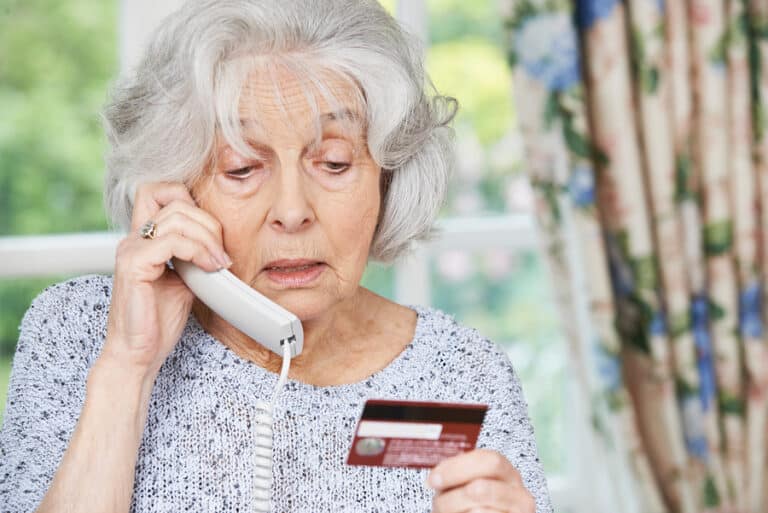Seniors are popular targets for scammers. As a group seniors lose more than 3 billion dollars per year to scammers. And the scams are getting more sophisticated and harder to spot. Romance scams that target lonely seniors are becoming more frequent.
So are scams where an account that claims to be the senior’s child or grandchild approaches them for money or gift cards. Since gift cards can’t be traced or replaced scammers will often ask seniors to send them gift cards for large amount of money.
If you’re worried that your senior parent is vulnerable to being scammed, you should consider elder care. Seniors who have elder care are harder to scam because they have someone in the house with them on a regular basis who can help protect seniors from scammers. When you can’t be there to help your mom or dad elder care can be there.
In addition to having elder care, here are some effective ways for seniors to avoid getting scammed are:
Stay Informed About Common Scams
Education is a powerful tool in preventing scams. Talk to your senior mom or dad about common scams targeting their demographic, such as:
- Phishing Scams: These often involve fraudulent emails or messages that appear to be from legitimate sources, requesting personal information.
- Tech Support Scams: Fraudsters pose as tech support agents, claiming there is a problem with the senior’s computer and requesting remote access or payment for fake services.
- Lottery and Prize Scams: Scammers inform seniors they’ve won a prize or lottery but need to pay a fee or provide personal information to claim it.
Teach them how to recognize red flags that indicate something might be a scam. And make sure their elder care provider knows the signs of a scam too.
Be Skeptical of Unsolicited Communications
Seniors should be cautious of unsolicited communications, whether by phone, email, or mail. Reliable businesses like banks and government agencies like the IRS will not call unsolicited or email. They will send a letter in the mail. Any prize offers for things like vacations or high-dollar prizes should be verified before your senior parent gives them any money or personal information, especially if your mom or dad doesn’t remember signing up for the contest.
Use Strong Passwords and Enable Two-Factor Authentication
Creating strong, unique passwords for online accounts and enabling two-factor authentication adds an extra layer of security. For strong passwords seniors should use a combination of letters, numbers, and symbols. Avoid easily guessable passwords such as birthdays or simple sequences.
Two-Factor Authentication: This adds an additional verification step, often through a code sent to your phone, making it harder for scammers to access your accounts.
Verify Before Trusting
Seniors should always verify the identity and legitimacy of any person or organization before providing personal information or making payments. That means if they get a call from someone that says they are from your mom or dad’s bank they should hang up and call the bank directly.
Report Scams
Seniors are often hesitant to report scammers, especially if they have lost money. They feel embarrassed or ashamed, and they might worry that they won’t be able to live on their own anymore. But reporting scams helps stop other seniors from being victims and may help seniors recover any money they lost.
If you or an aging loved one are considering hiring elder care in Charleston, SC, contact Heart of the Carolinas Home Care at (864) 990-4345.
Heart of the Carolinas Provides Senior Home Care Services in Greenville, Mauldin, Greer, Spartanburg, Anderson, Pawleys Island, Myrtle Beach, Hilton Head Island, Charleston, Columbia, Simpsonville, South Carolina, and surrounding areas.
- Is it Possible to Prevent Family Caregiver Burnout? - April 25, 2025
- Home Care Assistance Helps Seniors After A Fall - April 9, 2025
- How Home Care Supports Seniors Who Are Hard of Hearing - March 28, 2025

